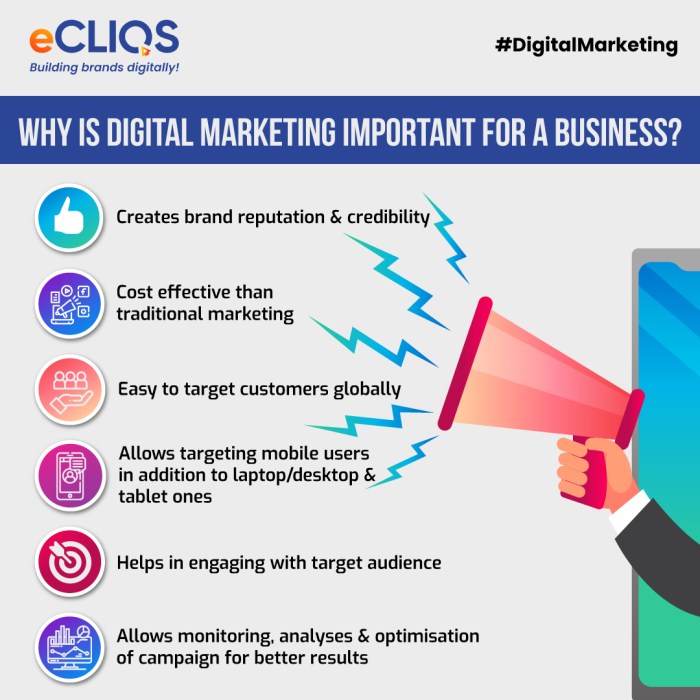The importance of networking in the digital marketing industry is undeniable. In this fast-paced, ever-evolving field, building strong relationships is not just beneficial—it’s essential for success. This exploration delves into the multifaceted ways networking can propel your career, expand your knowledge, and unlock unprecedented opportunities. From leveraging online platforms to attending industry events, we’ll uncover the strategies that will transform your professional landscape and establish you as a leader in the digital marketing world.
This journey will guide you through effective networking techniques, from crafting compelling online profiles to engaging in meaningful conversations at conferences. We will explore the power of collaboration, mentorship, and building a strong personal brand, all while emphasizing the strategic value of identifying and connecting with key individuals who can accelerate your growth and open doors to exciting prospects.
Prepare to unlock your full potential and thrive in the dynamic world of digital marketing.
Leveraging Online Platforms for Networking: The Importance Of Networking In The Digital Marketing Industry

The digital marketing landscape is inherently interconnected. Building a strong professional network online is no longer optional; it’s essential for staying ahead, collaborating on innovative projects, and accessing invaluable resources. This section explores how to effectively utilize online platforms to cultivate meaningful connections and propel your career forward.
Advantages and Disadvantages of Social Media for Professional Networking
Social media platforms offer a powerful way to connect with professionals globally, share your expertise, and discover new opportunities. However, each platform presents unique advantages and disadvantages. LinkedIn, for instance, excels in professional profile building and direct networking, while Twitter facilitates quick updates and engagement with industry influencers. Instagram, though visually focused, can be a powerful tool for showcasing your work and building a personal brand, particularly if your digital marketing focus is visual content.
Conversely, the casual nature of some platforms might not always be suitable for serious professional networking, and the sheer volume of information can be overwhelming if not managed effectively. It’s crucial to tailor your approach to each platform’s specific strengths.
Strategies for Participating in Online Communities and Forums
Active participation in relevant online communities and forums is key to building credibility and establishing relationships. Engage in thoughtful discussions, offer insightful comments, and share your expertise generously. Be mindful of the community’s norms and etiquette. Avoid self-promotion; instead, focus on providing value to others. Participating in Q&A sessions, responding to queries, and contributing to group projects are excellent ways to demonstrate your knowledge and build trust.
By consistently contributing to the conversation, you’ll become a recognized voice within your chosen niche, attracting valuable connections.
Creating a Compelling Online Presence
Your online presence is your digital storefront. A compelling profile showcases your expertise, personality, and professionalism. Craft a concise and engaging bio that highlights your skills and experience. Share high-quality content, such as blog posts, articles, case studies, or videos, demonstrating your knowledge and thought leadership. Engage with other users’ content, demonstrating interest and building relationships.
Maintain a consistent brand voice and visual identity across all your platforms. Remember, a strong online presence acts as a magnet, attracting opportunities and collaborators.
Using Online Tools to Manage Networking Efforts
Effectively managing your online networking requires organization and tracking. Utilize tools such as CRM (Customer Relationship Management) software to manage your contacts, track interactions, and schedule follow-ups. Social media management tools can help streamline your posting schedule and analyze your engagement metrics. These tools allow you to focus your efforts on building meaningful connections, rather than getting bogged down in administrative tasks.
Consider using project management tools to collaborate on projects with your network and maintain a shared workflow.
Comparison of LinkedIn, Twitter, and Instagram for Digital Marketing Networking
| Platform | Strengths | Weaknesses | Best Use for Digital Marketing Networking |
|---|---|---|---|
| Professional focus, strong profile building, direct networking, job opportunities | Can feel formal, less immediate engagement than other platforms | Finding jobs, connecting with recruiters, showcasing expertise through articles and recommendations | |
| Real-time engagement, industry news and updates, connecting with influencers | Fast-paced, information overload, easily overlooked | Sharing insights, participating in industry conversations, staying updated on trends | |
| Visual storytelling, showcasing creativity, building brand awareness | Less direct professional networking, requires high-quality visual content | Showcasing design work, building brand personality, engaging visually-oriented audiences |
Collaboration and Knowledge Sharing

The digital marketing landscape is dynamic and ever-evolving. To thrive in this environment, collaboration and knowledge sharing are not just beneficial, they’re essential. By working together and learning from each other’s experiences, digital marketers can unlock innovative strategies, overcome challenges more effectively, and ultimately achieve greater success. This synergistic approach fosters a culture of continuous improvement and mutual growth within the industry.Collaboration with fellow digital marketers offers a multitude of advantages.
Pooling expertise allows for a more comprehensive approach to campaigns, leading to more creative and effective solutions. Sharing resources and insights can save valuable time and money, while simultaneously expanding individual skill sets and professional networks. The collective knowledge base surpasses any individual’s capabilities, creating a powerful engine for innovation and problem-solving.
Identifying Potential Collaborators
Finding the right collaborators involves identifying individuals or agencies possessing complementary skill sets to your own. This might involve seeking out specialists in areas where you lack expertise, such as , PPC, or social media management. Networking events, online forums, and professional organizations are excellent avenues for connecting with potential collaborators. Analyzing their past projects and online presence can provide valuable insight into their capabilities and working style, helping you find partners who align with your professional goals and values.
Consider looking for individuals with a proven track record of success and a collaborative spirit.
Effective Communication and Expectations
Clear communication is the cornerstone of any successful collaboration. Before embarking on a joint project, clearly define roles, responsibilities, timelines, and deliverables. Utilize project management tools to track progress, share updates, and address any issues promptly. Regular check-ins and open communication channels ensure everyone is on the same page and that any potential conflicts are resolved swiftly and efficiently.
Establishing shared goals and a common understanding of expectations will significantly enhance the effectiveness of the collaboration.
Examples of Successful Collaborative Projects, The importance of networking in the digital marketing industry
Numerous successful collaborative projects showcase the power of teamwork in digital marketing. For example, a small agency specializing in content creation might partner with a larger agency experienced in paid advertising. The combined expertise allows them to offer a more comprehensive service to clients, leading to better campaign performance and increased client satisfaction. Another example might be a collaboration between a social media influencer and a brand.
The influencer’s reach and engagement combined with the brand’s marketing expertise can lead to a highly effective and impactful campaign. These partnerships demonstrate the potential for achieving more together than any party could accomplish alone.
Establishing a Collaborative Workflow
Implementing a robust collaborative workflow involves several key steps. First, define the project scope and objectives. Next, assign roles and responsibilities based on each collaborator’s strengths. Then, establish clear communication channels and a project management system to track progress and ensure accountability. Regular meetings should be scheduled to review progress, address challenges, and make necessary adjustments.
Finally, celebrate successes and learn from any setbacks to continuously improve the collaborative process. This structured approach helps ensure that collaborations run smoothly and efficiently, maximizing the benefits of teamwork.
Ultimately, success in the digital marketing industry hinges on the strength of your network. By actively cultivating relationships, strategically leveraging online platforms, and engaging in meaningful collaborations, you position yourself for remarkable growth and lasting impact. Remember, networking is not just about collecting contacts; it’s about building genuine connections, sharing knowledge, and fostering mutually beneficial partnerships. Embrace the power of networking, and watch your career soar to new heights.
You also can investigate more thoroughly about how to choose the right digital marketing channels for your business to enhance your awareness in the field of how to choose the right digital marketing channels for your business.
For descriptions on additional topics like essential tools and technologies for running a thriving digital marketing agency, please visit the available essential tools and technologies for running a thriving digital marketing agency.